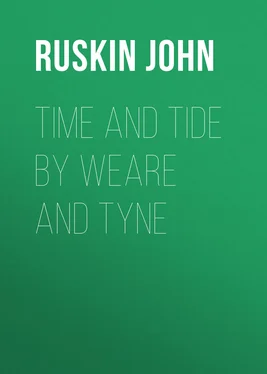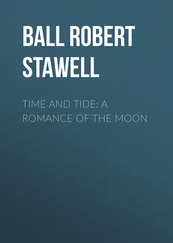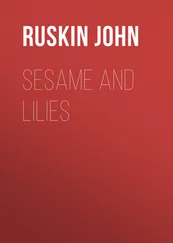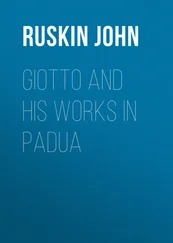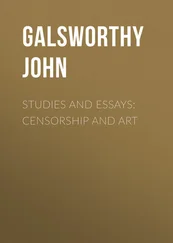John Ruskin - Time and Tide by Weare and Tyne
Здесь есть возможность читать онлайн «John Ruskin - Time and Tide by Weare and Tyne» — ознакомительный отрывок электронной книги совершенно бесплатно, а после прочтения отрывка купить полную версию. В некоторых случаях можно слушать аудио, скачать через торрент в формате fb2 и присутствует краткое содержание. Жанр: foreign_prose, literature_19, foreign_antique, на английском языке. Описание произведения, (предисловие) а так же отзывы посетителей доступны на портале библиотеки ЛибКат.
- Название:Time and Tide by Weare and Tyne
- Автор:
- Жанр:
- Год:неизвестен
- ISBN:нет данных
- Рейтинг книги:4 / 5. Голосов: 1
-
Избранное:Добавить в избранное
- Отзывы:
-
Ваша оценка:
- 80
- 1
- 2
- 3
- 4
- 5
Time and Tide by Weare and Tyne: краткое содержание, описание и аннотация
Предлагаем к чтению аннотацию, описание, краткое содержание или предисловие (зависит от того, что написал сам автор книги «Time and Tide by Weare and Tyne»). Если вы не нашли необходимую информацию о книге — напишите в комментариях, мы постараемся отыскать её.
Time and Tide by Weare and Tyne — читать онлайн ознакомительный отрывок
Ниже представлен текст книги, разбитый по страницам. Система сохранения места последней прочитанной страницы, позволяет с удобством читать онлайн бесплатно книгу «Time and Tide by Weare and Tyne», без необходимости каждый раз заново искать на чём Вы остановились. Поставьте закладку, и сможете в любой момент перейти на страницу, на которой закончили чтение.
Интервал:
Закладка:
16. Note this second passage with respect to what I said in my last letter, as to the impossibility of the laws of work being investigated in the House of Commons. What admixture of elements, think you, would avail to obtain so much as decent hearing (how should we then speak of impartial judgment?) of the cause of working men, in an assembly which permits to one of its principal members this insolent discourtesy of language, in dealing with a preliminary question of the highest importance; and permits it as so far expressive of the whole color and tone of its own thoughts, that the sentence is quoted by one of the most temperate and accurate of our daily journals, as representing the total answer of the opposite side in the debate? No! be assured you can do nothing yet at Westminster. You must have your own parliament, and if you cannot detect enough honesty among you to constitute a justly minded one, for the present matters must take their course, and that will be, yet awhile, to the worse.
17. I meant to have continued this subject, but I see two other statements in the 'Pall Mall Gazette' of to-day, with which, and a single remark upon them, I think it will be well to close my present letter.
(1) "The total sum asked for in the army estimates, published this morning, is 14,752,200 l. , being an increase of 412,000 l. over the previous year."
(2) "Yesterday the annual account of the navy receipts and expenditure for the year ending 31st March, 1866, was issued from the Admiralty. The expenditure was 10,268,115 l. 7 s. "
Omitting the seven shillings, and even the odd hundred-thousands of pounds, the net annual expenditure for army and navy appears to be twenty-four millions.
The "grant in science and art," two-thirds of which was not in reality for either, but for amusement and shop interests in the Paris Exhibition—the grant which the House of Commons feels to be indicative of general danger to the national pockets—is, as above stated, 164,000 l. Now, I believe the three additional ciphers which turn thousands into millions produce on the intelligent English mind usually the effect of—three ciphers. But calculate the proportion of these two sums, and then imagine to yourself the beautiful state of rationality of any private gentleman, who, having regretfully spent 164 l. on pictures for his walls, paid willingly 24,000 l. annually to the policeman who looked after his shutters! You practical English!—will you ever unbar the shutters of your brains, and hang a picture or two in those state-chambers?
LETTER V.
THE CORRUPTION OF MODERN PLEASURE.—(COVENT GARDEN PANTOMIME.)
18. There is this great advantage in the writing real letters, that the direct correspondence is a sufficient reason for saying, in or out of order, everything that the chances of the day bring into one's head, in connection with the matter in hand; and as such things very usually go out of one's head again, after they get tired of their lodging, they would otherwise never get said at all. And thus to-day, quite out of order, but in very close connection with another part of our subject, I am going to tell you what I was thinking on Friday evening last, in Covent Garden Theater, as I was looking, and not laughing, at the pantomime of 'Ali Baba and the Forty Thieves.'
When you begin seriously to consider the question referred to in my second letter, of the essential, and in the outcome inviolable, connection between quantity of wages, and quantity of work, you will see that "wages" in the full sense don't mean "pay" merely, but the reward, whatever it may be, of pleasure as well as profit, and of various other advantages, which a man is meant by Providence to get during life, for work well done. Even limiting the idea to "pay," the question is not so much what quantity of coin you get, as—what you can get for it when you have it. Whether a shilling a day be good pay or not, depends wholly on what a "shilling's worth" is; that is to say, what quantity of the things you want may be had for a shilling. And that again depends, and a great deal more than that depends, on what you do want. If only drink, and foul clothes, such and such pay may be enough for you; if you want good meat and good clothes, you must have larger wage; if clean rooms and fresh air, larger still, and so on. You say, perhaps, "every one wants these better things." So far from that, a wholesome taste for cleanliness and fresh air is one of the final attainments of humanity. There are now not many European gentlemen, even in the highest classes, who have a pure and right love of fresh air. They would put the filth of tobacco even into the first breeze of a May morning.
19. But there are better things even than these, which one may want. Grant that one has good food, clothes, lodging, and breathing, is that all the pay one ought to have for one's work? Wholesome means of existence and nothing more? Enough, perhaps, you think, if everybody could get these. It may be so; I will not, at this moment, dispute it; nevertheless, I will boldly say that you should sometimes want more than these; and for one of many things more, you should want occasionally to be amused!
You know, the upper classes, most of them, want to be amused all day long. They think
"One moment un amused a misery
Not made for feeble men."
Perhaps you have been in the habit of despising them for this; and thinking how much worthier and nobler it was to work all day, and care at night only for food and rest, than to do no useful thing all day, eat unearned food, and spend the evening, as the morning, in "change of follies and relays of joy." No, my good friend, that is one of the fatalest deceptions. It is not a noble thing, in sum and issue of it, not to care to be amused. It is indeed a far higher moral state, but is a much lower creature state, than that of the upper classes.
20. Yonder poor horse, calm slave in daily chains at the railroad siding, who drags the detached rear of the train to the front again, and slips aside so deftly as the buffers meet; and, within eighteen inches of death every ten minutes, fulfils his changeless duty all day long, content, for eternal reward, with his night's rest, and his champed mouthful of hay;—anything more earnestly moral and beautiful one cannot image—I never see the creature without a kind of worship. And yonder musician, who used the greatest power which (in the art he knew) the Father of spirits ever yet breathed into the clay of this world;—who used it, I say, to follow and fit with perfect sound the words of the 'Zauberflöte' and of 'Don Giovanni'—foolishest and most monstrous of conceivable human words and subjects of thought—for the future "amusement" of his race!—No such spectacle of unconscious (and in that unconsciousness all the more fearful) moral degradation of the highest faculty to the lowest purpose can be found in history. But Mozart is nevertheless a nobler creature than the horse at the siding; nor would it be the least nearer the purpose of his Maker that he, and all his frivolous audiences, should evade the degradation of the profitless piping, only by living, like horses, in daily physical labor for daily bread.
21. There are three things to which man is born 1 1 I ask the reader's thoughtful attention to this paragraph, on which much of what else I have to say depends.
—labor, and sorrow, and joy. Each of these three things has its baseness and its nobleness. There is base labor, and noble labor. There is base sorrow, and noble sorrow. There is base joy, and noble joy. But you must not think to avoid the corruption of these things by doing without the things themselves. Nor can any life be right that has not all three. Labor without joy is base. Labor without sorrow is base. Sorrow without labor is base. Joy without labor is base.
Интервал:
Закладка:
Похожие книги на «Time and Tide by Weare and Tyne»
Представляем Вашему вниманию похожие книги на «Time and Tide by Weare and Tyne» списком для выбора. Мы отобрали схожую по названию и смыслу литературу в надежде предоставить читателям больше вариантов отыскать новые, интересные, ещё непрочитанные произведения.
Обсуждение, отзывы о книге «Time and Tide by Weare and Tyne» и просто собственные мнения читателей. Оставьте ваши комментарии, напишите, что Вы думаете о произведении, его смысле или главных героях. Укажите что конкретно понравилось, а что нет, и почему Вы так считаете.
